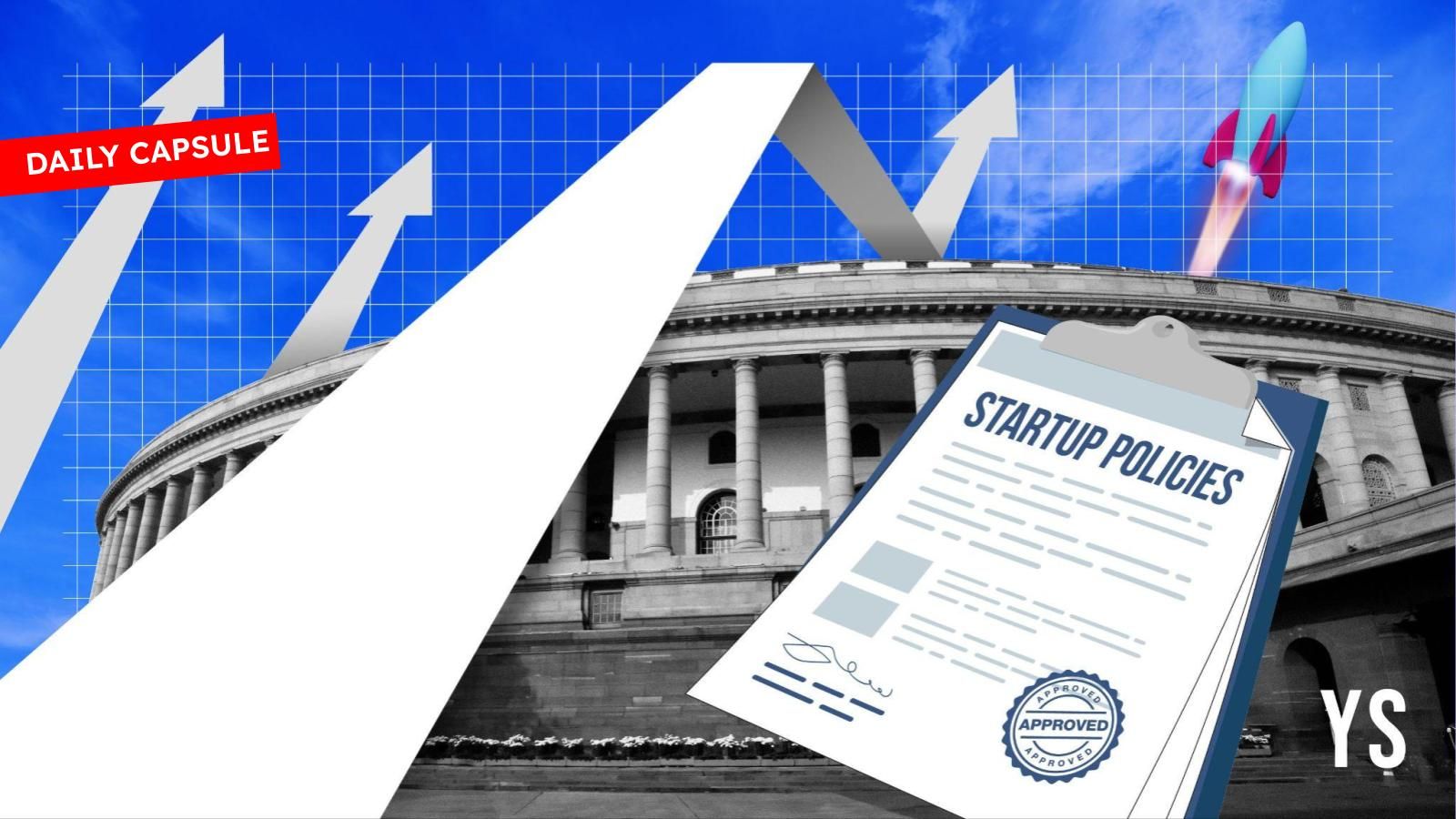Hello,
Indian startups are reaching for the stars. Literally.
Bengaluru-based Digantara and Pixxel, along with Hyderabad-based XDLINX Spacelabs, have launched satellites aboard SpaceX’s Transporter-12 rocket. These satellites will help in environmental monitoring and resource management, among other things.
Meanwhile, the Indian startup ecosystem—the third-largest in the world—is getting quite a reputation as a jobs machine.
According to the Ministry of Commerce and Industry, DPIIT-recognised startups have created over 16.6 lakh direct jobs across various sectors from 2016 to October 31, 2024. The IT services industry leads with 2.04 lakh jobs, followed by healthcare and life sciences with 1.47 lakh jobs.
Also, to mark the occasion of the ninth National Startup Day, YourStory is hosting a day-long live marathon startup showcase to throw the spotlight on startups that have never been featured before.
Join us on LinkedIn for The Great Indian Startup Showcase, where 75+ handpicked early-stage startups from across the country will showcase their innovation, resilience, and creativity.
And lastly, Indian startups witnessed a funding revival in 2024, raising $13.2 billion, a 22% increase from 2023’s $10.8 billion. YourStory’s Annual Funding Report 2024 offers detailed analysis and deeper insights into key trends shaping the ecosystem.
Click here to get the full report.
In today’s newsletter, we will talk about
- Indian startup and policy reforms
- A conversation with IPV’s Vinay Bansal
- Taking on India’s dairy industry
Here’s your trivia for today: Which company’s initial product was a Twitter-like service called “Burbn”?
Entrepreneurship
Indian startup and policy reforms
Over the past nine years, the Indian startup ecosystem has emerged as a global hub for innovation and entrepreneurship. In 2024, it was further bolstered by several forward-thinking policy changes, including streamlined regulations, enhanced access to funding, tax incentives, and sector-specific reforms.
As we celebrate our startups, here are a few noteworthy policy developments that helped the ecosystem stakeholders push the boundaries of innovation.
Key reforms:
- In 2024, the government abolished the ‘angel tax’ on investors funding startups to attract more investment into the country’s burgeoning startup ecosystem.
- The government reformed its compliance procedures by removing the requirement for approval from the NCLT for foreign-based companies merging with domestic subsidiaries, encouraging Indian startups domiciled abroad to return home and access the IPO market in India.
- India launched the Startup Policy Forum to drive innovation and policy reform. In its initial phase, SPF limited membership to 100 startups, with 30 prominent names already on board, including Razorpay, CRED, Pine Labs, Groww, Acko, OYO, and Swiggy.

Funding Alert
Startup: Foxtale
Amount: $30M
Round: Series C
Startup: Euler Motors
Amount: $20M
Round: Debt
Startup: Ecozen
Amount: $23M
Round: Debt
Interview
A conversation with IPV’s Vinay Bansal
Twenty years in finance teaches you a thing or two about money, but for Vinay Bansal, it revealed a glaring gap in India’s investment landscape. As a CA who had cut his teeth in private equity, he saw firsthand how the startup ecosystem offered incredible returns—but remained frustratingly out of reach for most professionals.
Enter Inflection Point Ventures (IPV). Founded in 2018 as Bansal’s solution to democratise startup investing, it has evolved into one of India’s most influential angel investing platforms.
VC talk:
- Bansal says, “Till 2016-17, we continued to invest with friends and family. By 2019, we had grown to about 200 people and were managing this while doing our jobs. After seeing great returns and maintaining a low failure rate, we opened it up to the public in 2019.”
- With a portfolio of over 250 investments and a remarkably low failure rate—less than 10%, says Bansal—IPV’s approach has proven that disciplined, systematic angel investing can work at scale.
- Speaking of 2025 plans, he said, “We are looking to go global with an international fund coming up in the next couple of months. We will also be doing the final close of our Category 2 fund next year.”

Women Entrepreneurs
Taking on India’s dairy industry
Growing up amidst the simplicity of rural life on Bhagyalakshmi Dairy Farm in Manchar, Akshali Shah imbibed lessons of trust, sustainability, and community care–values that Parag Milk Foods is built on.
When Shah took on an active leadership role, Parag Milk Foods was primarily a sales-driven company. Her mission, from early on, was to transform it into a marketing powerhouse with a strong consumer focus.
Making a mark:
- Under her leadership, Parag Milk Foods grew into one of India’s leading private dairy FMCG companies, with a presence in over 20 countries and a diverse portfolio of brands. These include Gowardhan, Go Cheese, Pride of Cows, and Avvatar.
- “The strength of our robust infrastructure, advanced food technology, trusted farmer network, and widespread distribution channels has always been our foundation, helping us make a mark in the industry,” she says.
- Beyond financial achievements, Shah says she finds the greatest satisfaction in witnessing the positive impact of her work on consumers and farmers.

News & updates
- Sign up: OpenAI has begun testing a feature that lets new ChatGPT users sign up with only a phone number—no email required. The feature is currently in beta in the US and India. There are, however, some restrictions. OpenAI says it has no plans to bring phone number-only sign-ups to other regions.
- Antitrust: Meta may have to “roll back or pause” some features in India due to an antitrust directive, which banned its WhatsApp messaging service from sharing user data with Meta for advertising purposes.
- Scrutiny: The US plans to unveil regulations to encourage chip producers like TSMC, Samsung Electronics, and Intel to more carefully scrutinise customers and increase due diligence. The changes follow an incident where TSMC-made chips were secretly diverted to the blacklisted Chinese company Huawei Technologies Co.
Which company’s initial product was a Twitter-like service called “Burbn”?
Answer: Instagram.
We would love to hear from you! To let us know what you liked and disliked about our newsletter, please mail [email protected].
If you don’t already get this newsletter in your inbox, sign up here. For past editions of the YourStory Buzz, you can check our Daily Capsule page here.








![Read more about the article [Jobs Roundup] Here’s how you can work for edtech startup Teachmint](https://blog.digitalsevaa.com/wp-content/uploads/2021/06/Imagejqo4-1603877993711-300x150.jpg)

![Read more about the article [Funding alert] Lavado raises undisclosed sum from Pepperfry founders](https://blog.digitalsevaa.com/wp-content/uploads/2021/05/Funding-1587044486257-300x150.png)